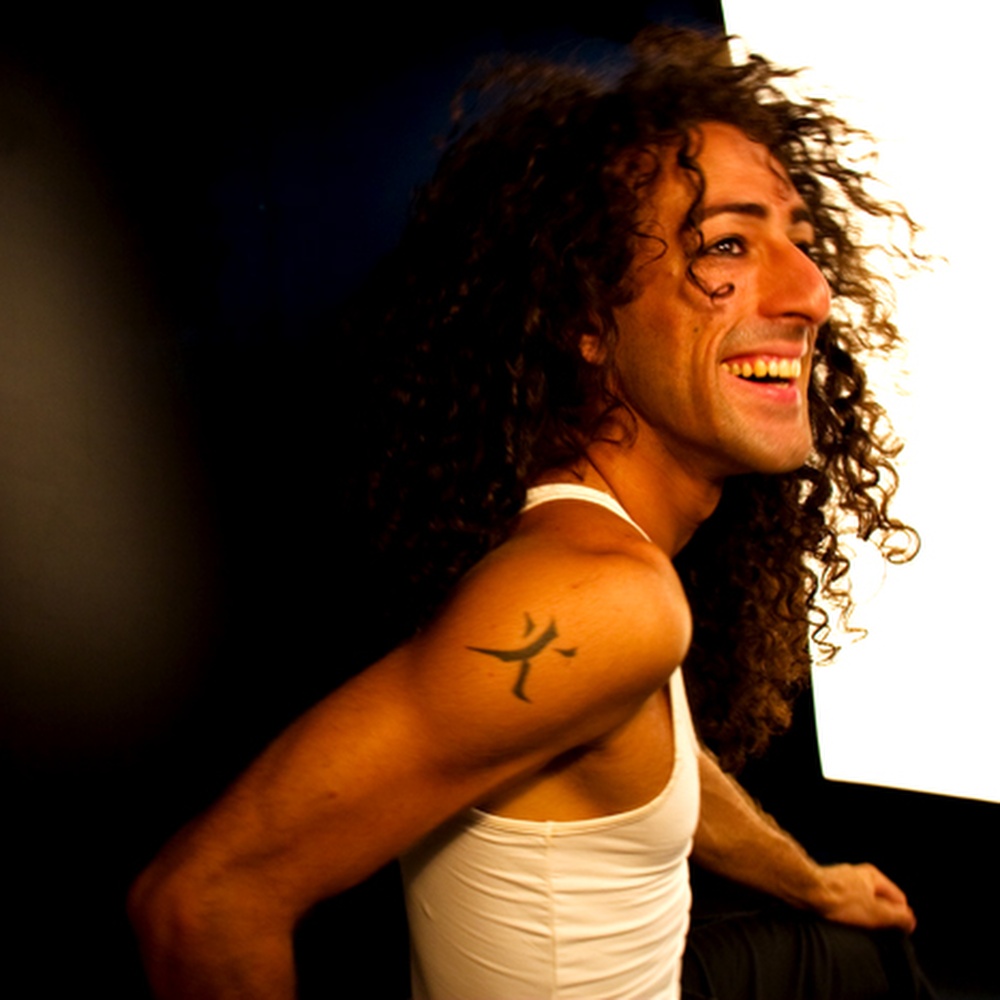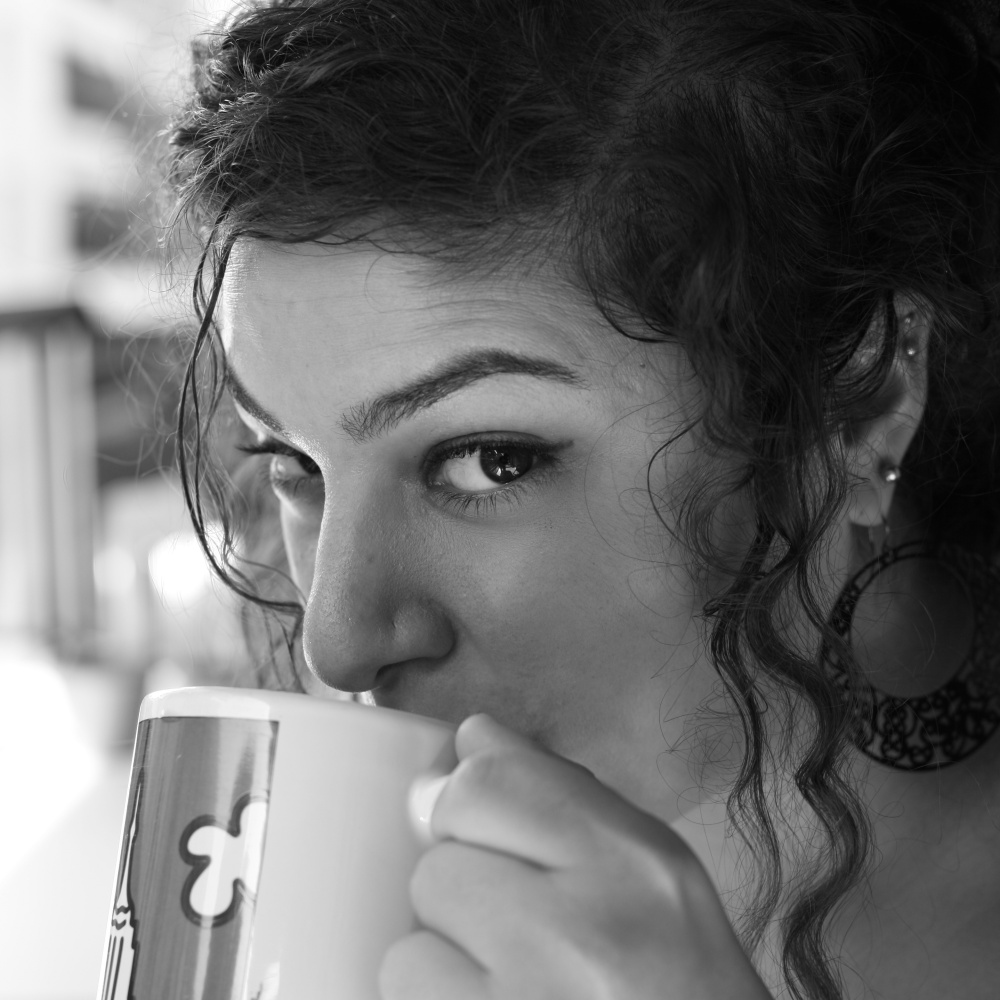We have never had a meal together. How is that even possible? How have we made it this far and never shared a meal?
*
I was in the cheese aisle of one of two supermarket franchises in Beirut looking for labneh baladi-yeh, when I was accosted by that stupid little flag “IMPORTED FOR YOU”, lining an excessive number of shelves full of American cream cheese –– plain cream cheese, light cream cheese, cream cheese with chives, cream cheese with lox, cream cheese with lox and chives, jalapeño cream cheese, whipped cream cheese, chocolate hazelnut cream cheese, cultured cream cheese. That’s right: Cultured –– Great Taste and Easy to Spread!
Apart from finding the best slogan for a T-shirt ever and being reminded that it was always easier (and less tempting) to buy labneh from the neighbourhood dikkaneh, this very real moment was and still is ripe for conversation.
Where do we even begin?
*
Alex, we first met in an elevator heading up to the dance studio where you taught and I took almost every class on the meagre schedule. It was about 12 years ago. I don’t much remember the choreographic details of it all (who came in first, who initiated conversation), I just remember that we were both facing the door and that I was wearing a black t-shirt (surprise, surprise) that said:
لا نصمت
we will not be silenced
or
free humanity
shoot an intellectual
The latter was made for me by a (common) friend who understood my provocative sense of humour and penchant for irony and language play. In this increasingly polarising world we live in, I might opt not to wear that t-shirt (I really love) again, but I digress.
You asked how long I’d been dancing and I grumbled an answer.
“Good. Dance allows you to dream,” you said as we reached our floor and, on cue, you softly sashayed out the elevator door.
I agreed then. And I still do.
Dance allows you to dream. Not the doe-eyed, frivolous, head-in-the-cloud kind of dreaming, but a grounded radical dreaming that generates new horizons. To dance is a radical act that brings the body to the fore. A body that feels, senses and moves. A body that is liberated from the prison house of language and rationality. A body that needs to be nourished and fed. Simple.
This radical is present in every piece of work that you have made. From affecting commentary on gender fluidity and continued revolution, to the cabaret fantastic of shimmy and shimmer, you provoke bodies and (kindly) ask them to confront their own complacency and complicity, invite them to be present, to be vulnerable, to be fierce.
To dream.
*
I visited a clairvoyant once, a palm reader named Crystal. She took my hands and softly traced the lines to a soundtrack of inquisitive ohs and intriguing ahs, as she went through the usual drivel about how I will enjoy a long prosperous life, full of bounty and abundance, well into my octogenarian years (blabla blabla). Sensing my ever so subtle and silent scepticism, she took off her performative mask, pierced me still with her gaze and proceeded to sum me up in the most confusingly intimate five minutes I’ve experienced with a complete stranger.
You are in no way career oriented. A potentially decent writer, sure, should you consider taking words less seriously. And dance for you is no simple hobby, but a way of life. You’re a mover and home will never be fixed in place. It is in the people you inhabit uncertainty with.
I’ve always sensed you feel the same. It is so glaringly obvious to me in your strong reclamation of baladi, taking it back from simplistic aesthetics and the exoticizing gaze, to remind us of grounded movement rooted in overlapping, playful translations of country, local, popular and native, in the mutuality of self, other and the natural world. It is in these concepts that continue to grow organically with time, that resist being still, that you find your words.
*
I spent a lot of time in the kitchen with teta growing up, because it was the warmest place in the house. Literally, the stove was almost always on making coffee for family and friends. Teta had a sweet tooth and channelled all her affection into baking cakes and cookies that she most liked to eat. Her cooking was a different story, a tedious job she begrudgingly had to do later in life and she felt trapped in the kitchen (which was ultimately where we lost her). She was a matriarch and was meant to be doing other things. If it was up to her, she would have gladly given us all cavities (laced with love).
I still have her recipe book, a palimpsest of smeared ink and luminous drops of oil, of scratch and scribbles in Arabic, French and really bad attempts at English from a short stint in the US. It is in these pages that I meet her again. In the smell of yansoun and the taste of sfouf b’dibs. In the notes of substitutions she devised when her luggage full of foodstuff brought to the States from home had depleted. Marshmallow fluff when she couldn’t find soapwort to make natef, mozzarella instead of akkawi for knaffeh. She always found ways to recreate flavours of comfort and I taught myself to cook to reclaim them (and my own voracious appetite).
Isn’t it funny how food can invoke absence, how flavour can rupture the temporal and bring back the dead, if only for a bite?
Food allows us to accept that life is about loss. And it is in this embodied contradiction Alex, that you find your nafas (breath, spirit, soul, heart) and nourish us with whatever you bring to the table.
You always offer your heart, it’s your greatest act of love.
*
How is it that we have never had a meal together? How is that even possible? I’ve known you for over a decade (bitch!) and we have not once shared a meal.
We’ve shared studio space, drinks (so many drinks) and bottles of wine. We’ve shared gossip and rage, secrets and desires, encouragement, nurture, grief and support (so much support). But never a meal.
I am rather outraged at this realisation. Does it mean that our friendship isn’t consummated? Do we mean anything if we haven’t broken bread together? And so I am setting an intention and the table, waiting in Beirut (because we always wait here), until this long overdue invitation comes to fruition.
It’s been two years since I’ve seen you, and I am really in need of a taste of home.

